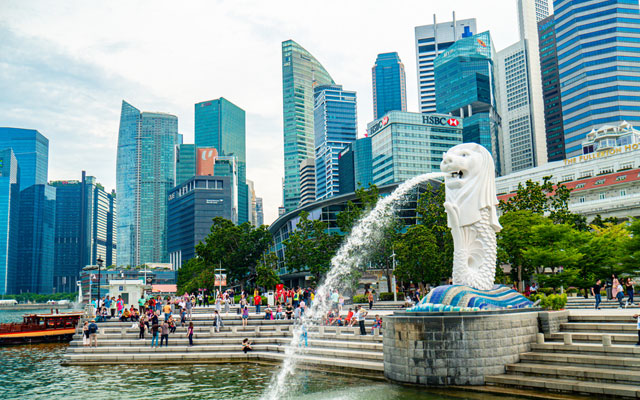On May 26, Deputy Prime Minister and Finance Minister of Singapore Heng Swee Keat announced the country's fourth economic stimulus package for the next phase in response to the COVID-19 pandemic. The support package, called "Resilient Budget", worth SGD 33 billion (approximately US $ 23.5 billion) will focus on the employment.
The new economic stimulus package will continue to support workers and businesses affected by border closures and social isolation measures, while providing additional support to households and people on the front line against the epidemic.

According to Mr. Heng, the main goals of the fourth stimulus package are to timely support to businesses and workers, support businesses to transform to ensure the employment for workers, and support workers to improve skills or retrain skills to seize current and future opportunities.
The Singaporean government will also extend the assistance for renting spaces to small and medium enterprises (SMEs). The government is expected to submit a draft bill next week to the National Assembly, which will require landlords to waive the cost of renting premises to severely affected SMEs in recent months. For startups, the Government of Singapore also provides an additional SGD 285 million to support these businesses in maintaining startup activities.
For digital transformation, Heng said more than SGD 500 million will be devoted to supporting businesses transitioning to a digital business model. Relevant agencies will provide a subsidy of SGD 300 per month within 5 months to encourage shop owners at dining centers, popular markets, cafes and canteens to apply non-cash payment.
In terms of employment, the Singapore Government will assist businesses in cash flows, operating costs and credit provision. Accordingly, the government will continue to support all businesses to pay an extra month's salary (received in October 2020) to employees at the wage paid in August 2020. The "Resilient Budget" package will also support vocational training to create 40,000 job positions, 25,000 trainee positions and 30,000 job training courses.
The Singaporean government will also promote the public service sector to rapidly recruit workers to meet long-term needs such as early childhood education, health services and health care.
Notably, in this fourth stimulus package, the Government of Singapore has focused on encouraging employers to recruit more Singaporean workers. For eligible Singaporean workers aged 40 and over, the government will support businesses about 40% of the salary payment within 6 months, up to SGD 12,000, while for Singaporean workers under 40 age, the support level is 20% within 6 months, maximum of SGD 6,000.
Regarding social security, Mr. Heng said, to continue to support the struggling households, the Government of Singapore will also spend an additional amount of up to SGD 800 million. It is expected that over 100,000 self-employed individuals will receive the first support of SGD 3,000 this week.
In addition, the Government of Singapore will support SGD 100 for each household having at least one Singaporean citizen to pay the cost of electricity and water bills in July and August 2020.
A reserve of SGD 13 billion is also provided to enable the Government of Singapore to respond and respond quickly to unforeseen developments of the COVID-19 epidemic. Currently, each year the government spends about 3 billion SGD as a reserve fund and a development reserve fund.

According to Mr. Heng, with the value of the fourth stimulus package, Singapore's 2020 fiscal budget deficit has reached SGD 74.3 billion (about 15.4% of GDP) and is the largest number since Singapore gained the independence.
In total, four stimulus packages have been published so far, the Government of Singapore has spent SGD 92.9 billion, equivalent to 19.2% of the country's GDP, to cope with the impact of the COVID-19 pandemic.
Source: TCCT.